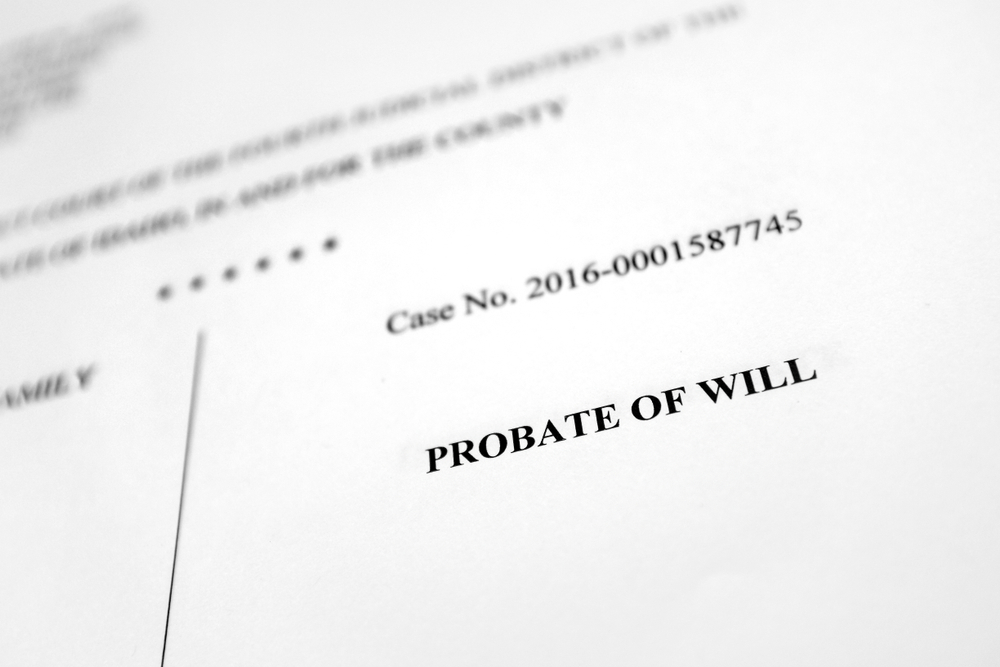
Probate is a legal proceeding through which the estate of a deceased person is administered to named beneficiaries—if there is a last will and testament—or to family members through the law of intestate succession if there is no will. With or without a will, however, some assets will pass to the beneficiaries outside of probate. Probate proceedings usually revolve around only those assets held solely in the decedent’s name.
In many states, the probate court supervises the administration of the estate and will get involved in nearly every decision, but California, fortunately, allows more leeway for the executor of the estate to operate independently on most matters. California also allows an “out” clause for estates below a certain value, in which only an affidavit need to be filed for simplified probate.
If you are creating a will to take care of your loved ones, and if you are the executor of an estate for someone who has just passed away, and you’re in or around the San Jose, California, area, contact Leet Law. We will answer all your questions and concerns and help you in creating a comprehensive will or carrying out your duties as the executor of an estate. We also proudly serve clients in San Francisco, Palo Alto, Oakland, and the rest of the Bay Area.
Probate in California
As mentioned above, probate proceedings involve the reconciliation of assets held solely in the decedent’s name. The decedent’s will generally will designate an executor, also sometimes called a personal representative, to oversee the administration of the estate. If one is not named, then the supervising court will name one.
The executor must manage all the assets, ensuring their safety, pay all outstanding debts and taxes, and if necessary, sell assets to meet credit or tax obligations. The process can take six months to a year. In most states, these vital functions are under the direct supervision of the probate court, but California allows executors more freedom.
California’s Independent Administration of Estates Act allows the executor to carry out virtually every task of managing and settling the estate without reporting to the probate court, but with certain exceptions. Selling real estate is one act that must be coordinated with the court. Also, if there isn't enough money to pay all valid claims, state law spells out the order in which claims are to be paid from estate assets.
In some cases, probate can be avoided altogether in the Golden State. If the value of assets in the estate that do not pass directly to beneficiaries (see next section) totals $184,500 or less, inheritors can claim the assets simply by filing a simple sworn statement, or affidavit, to initiate a streamlined summary probate process.
Assets That Transfer Outside of Probate
Let’s start with probably the biggest asset: the family home. California is a community property state, so real estate held by both spouses or partners will pass to the surviving spouse or partner outside of probate. If the property is located in another state but held in co-tenancy with the right of survivorship, then that too should pass to the co-tenant outside of probate proceedings. Only property held in the decedent’s name only or as tenants in common is subject to probate.
Also, other assets with named beneficiaries transfer outside of probate, such as retirement accounts, life insurance policies, annuities, and pension plans in general. Even wages, salaries, or commissions due the decedent generally transfer outside of probate, though there may be limits.
Ways to Avoid Probate
Assets such as bank accounts and savings bonds can transfer outside of probate if they are established as “payable-upon-death.” Cars and boats will generally transfer outside of proceedings since they are considered community property in California, though to be safe, they can be established as “transfer-upon-death.”
The single greatest way to protect assets from probate is to place them in a living trust and name a trustee to oversee and administer the assets upon your death. The trust is largely free of probate court supervision, though the basic principles of estate administration still apply. Creditors and taxes still must be paid.
The bottom line is that, when you’re planning for ways to care for your loved ones after you’re gone, you should consult with an experienced estate planning attorney to make sure your plan is comprehensive and ironclad. Even with a trust, you probably will still need the will to transfer any assets you may have forgotten to place into the transfer (called a “pour-over” will) or to designate a guardian for your minor children.
Obtain Experienced Legal Counsel
Whether you’re embarking on estate planning, reviewing the plan you have in place, or facing the prospect of administering an estate as an executor, contact us at Leet Law. We can help you not only with estate planning but also with probate administration. We proudly serve clients in San Jose and all surrounding communities, including Palo Alto, San Francisco, and Oakland.
